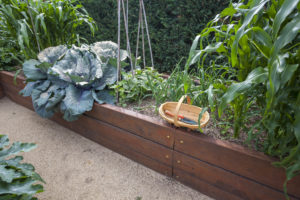Planning a raised garden
 There are many advantages to a raised garden bed. They can extend the growing season because they can easily be covered and the soil will warm sooner in the spring. There’s less weeds and there’s no foot traffic on them to deal with in your garden.
There are many advantages to a raised garden bed. They can extend the growing season because they can easily be covered and the soil will warm sooner in the spring. There’s less weeds and there’s no foot traffic on them to deal with in your garden.
They also create beautiful natural, barriers in your yard.
Here are some tips for getting the most out of your raised garden bed:
Use a barrier to prevent other plants and roots from making their way into them. You could use a commercial weed barrier, a piece of old carpet, or a thick piece of corrugated cardboard. Essentially you want you prevent your clean soil from getting filled with weeds.
Mulch the top layer. This will prevent weeds and help keep the soil from drying out. Raised beds will dry out quicker than regular garden beds
Add compost/ manure annually to add nutrients back into the soil. Soil soil will settle and get depleted as time goes on. Adding a bit of compost yearly will help mitigate the breakdown.
Plan an irrigation system. Installing a system before you plant can save you a lot of time standing around with a hose.
Cover up in winter. Soil exposed to harsh winters will break down quicker. Add a layer of mulch or cover crops (rye-grass or crimson clover) once the growing season is done.
One of the trickiest things about raised beds is knowing how much soil and mulch you need to get to fill the bed. Avoid an extra trip to your garden store and use this handy calculator to figure out how much you need. https://www.gardenlifepro.com/soil-calculator/
With a bit of planning you can build the perfect raised garden beds that will be the compliment your beautiful backyard oasis.
